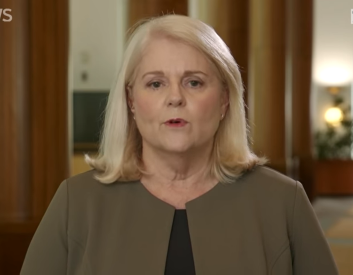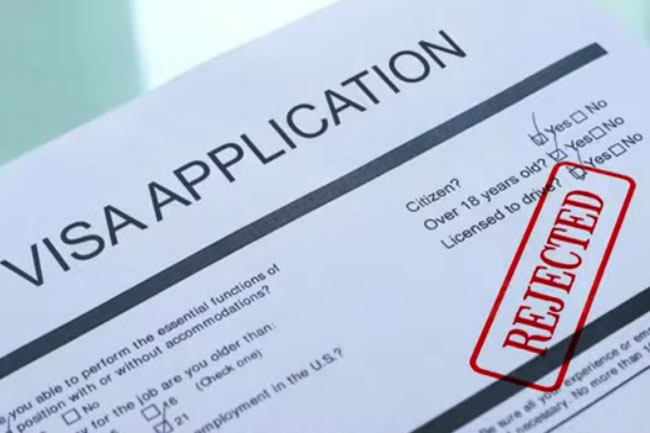The Joint Standing Committee on Migration’s (JSCM) final report on skilled migration proposes the Government undo some of Peter Dutton’s worst skilled migration policy mistakes. That is good but it is a long way from being good enough.
The Committee rightly recommends a rationalisation of skilled occupation lists, which have grown for no good reason. The Committee should also be applauded for recommending the abolition of Defence Minister Peter Dutton’s silly idea of preventing certain skilled temporary migrants from being sponsored by employers for permanent migration.
Without explicitly saying so, the JSCM makes clear that the sub-class 494 Regional Employer Sponsored visa announced by the Prime Minister in 2019 has also been a total dud — as many predicted.
The recommendations for clearer visa pathways for student graduates to permanent residence is also a positive development as is the recommendation for more regular audits to ensure the quality of the international education Australia delivers.
The recommendation for reduced reliance on labour market testing also has merit although the Committee fails to make an explicit recommendation for an immediate increase in the minimum salary paid to temporary skilled workers — this salary has been frozen since 2013. A higher minimum salary would be good policy grounds to abolish the charade of labour market testing altogether, although much stronger monitoring and enforcement provisions would be needed.
The JSCM also implores the Department of Home Affairs to improve processing times, client service, arrangements for collection of the Skilling Australians Fund levy and genuine visa simplification, not just shoving existing visas to lower levels in the system thus pretending to have delivered visa simplification. Most of these good administration concepts died under the stewardship of Dutton and Secretary Mike Pezzullo.
But as good as these reform directions are, the JSCM report largely ignores the big issues and opportunities. It has not only ignored one elephant in the room but a veritable herd of them.
Size and composition of the intake
It is quite extraordinary the Committee does not discuss the size of the migration program and the composition of the skill stream within this. The Committee makes no reference to the Treasury assumption the migration program should be increased to 190,000 per annum from 2023-24 or how much of this larger program should be for the skill stream. Nor does the Committee make any reference to the long-term net migration forecast of 235,000 per annum in the recent Intergenerational Report and how that will be delivered.
Surely discussion of these issues is fundamental to the design and delivery of visas in the skill stream. For example, in a larger migration program, which visa types are to be given priority, especially now we have the quite silly Global Talent Independent visa which the Committee ignores? Should that visa continue to have priority over Employer Sponsored visas or state/territory nominated visas? What is the assumed level of demand for different visa types given the proposed changes to visa design? What is to be done for the large and growing number of unsuccessful asylum seekers trafficked to Australia to work on farms?
Exploitation of migrant workers
The exploitation of migrant workers over the past decade has become endemic. This has been reported not only through the media but also numerous reports by independent bodies as well as the Government’s Migrant Worker Taskforce. Complaints about wage theft and exploitation to the Fair Work Ombudsman have been surging and these may only be the tip of the iceberg.
We have seen over the past six years the biggest labour trafficking scam in Australia’s history and the proposed Agriculture Visa will turbocharge the problem of farmworker exploitation as will the granting of full-time work rights to overseas students.
Yet the JSCM does not even mention the issue of migrant worker exploitation. Surely, some genuine strengthening of action against migrant worker exploitation warrants consideration in a report on skilled migration.
While the Committee may refer to a recent draft proposal to strengthen laws against employers exploiting migrant workers, the proposed changes in this are largely window dressing given the magnitude of the problem. And in any case, the plunging level of resources devoted to enforcing migrant worker exploitation means little will actually be done. The fact employers are largely unfussed about the proposals speaks volumes.
Employer driven migration versus bureaucracy driven
The Committee goes to great lengths to explain the difficulties of keeping occupation shortage lists up to date and the problems of the Australian and New Zealand Standard Classification of Occupations (ANZSCO).
The fact is that it has always been impossible to maintain an up-to-date skill shortage list at highly detailed levels for employer-sponsored migration across all regions of Australia and across all occupations. Trying to refine and constantly update occupation lists for employer-sponsored migration is a fruitless task.
The solution is to not use ever more detailed and frequently changing occupation lists for employer-sponsored migration but to allow accredited employers to recruit to any highly skilled occupation above a certain minimum level as long as the employer pays above both a relatively high minimum salary level or market rates, whichever is the higher (with a modest concession for regional Australia).
This approach relies on the fact unemployment rates for highly skilled workers in Australia has almost always been very low. It is the job opportunities of lower-skilled Australian workers that need to be protected, yet it is precisely those workers that we don’t protect.
But this approach to employer-sponsored migration will only work if there is close monitoring of salary payment through the tax system, a focus on strong enforcement and heavy penalties for employers who fail to comply. Sadly, both the Department of Home Affairs and the Fair Work Ombudsman do not have the resources to enforce such provisions. In these circumstances, a strong role for unions becomes essential.
That would of course be anathema to the Morrison Government.
Visa processing gridlock
Finally, the Committee fails to examine the visa processing gridlock in the Department of Home Affairs. While it recommends the Department look to improve processing times, that is a bit like suggesting to Donald Trump that he not tell lies quite as often.
The visa processing gridlock in the Department is such that it will take a massive increase in funding and many years to address. To do so, it needed the Committee to call this out.
But the Committee failed to do so.
Sloppy use of statistics
Finally, the Committee’s reference to 500,000 “temporary migrants” having left Australia and thus contributing to skill shortages is a highly misleading number. Firstly, the actual fall in temporary entrants between March 2020 and June 2021 was 459,000. Of that number, almost 160,000 were on visitor visas and hence would not have had work rights.
As the bulk of the migration program since March 2020 has been to temporary entrants already onshore, in 18 months, it’s likely around 170,000 of the decline was people moving onto permanent residence visas rather than leaving Australia. In other words, the actual decline in the number of people with some work rights is closer to 130,000 possibly less as many were students with limited work rights.
This sort of sloppy use of statistics does not help good policy development or engender confidence in Parliament.
Dr Abul Rizvi is an Independent Australia columnist and a former Deputy Secretary of the Department of Immigration. You can follow Abul on Twitter @RizviAbul.
Related Articles
- Peter Dutton’s legacy — Australia’s biggest labour trafficking scam
- Morrison's forthcoming 'U-turn' on migration
- JULIAN BURNSIDE: Dutton is still spending billions to keep people in misery
- Australia's trend toward Dutton-style government power
- Dutton misleads on his role in protecting public health
 This work is licensed under a Creative Commons Attribution-NonCommercial-NoDerivs 3.0 Australia License
This work is licensed under a Creative Commons Attribution-NonCommercial-NoDerivs 3.0 Australia License
Support independent journalism Subscribe to IA.














